
Highway Snow Clearing
Ontario, British Columbia, Alberta, and Quebec have privatized 80% or more of their highway snow clearing.
In each province, government promised privatization would deliver cost savings and higher quality of service. The evidence suggests that almost without exception, the opposite has been true. Cost only goes down when contractors are allowed to take longer to clear highways and use less salt and other materials – resulting in significant safety concerns.
Tell your MHA No!
You can send an email
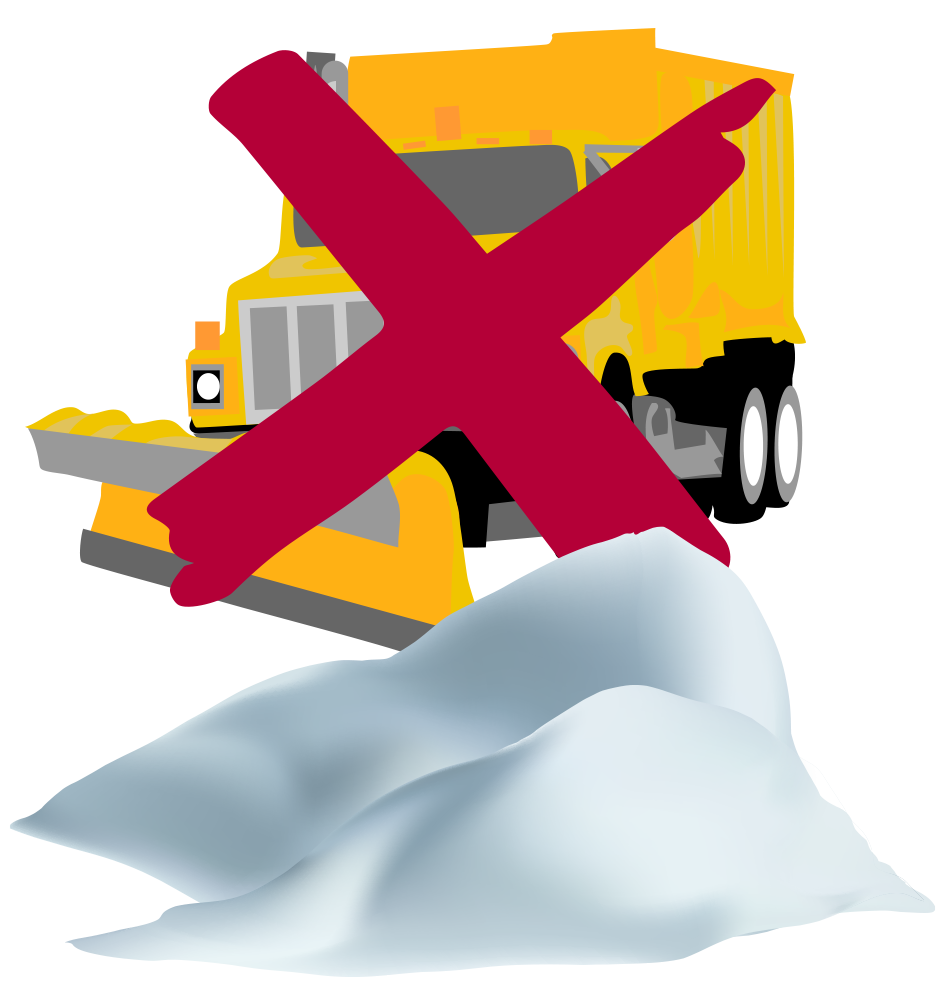
Negative impact of private-sector contractor’s bankruptcy
One of the most recent news stories that draws the wisdom of privatizing highway snow clearing into question involves the collapse of UK-based Carillion PLC in January 2018.
It is significant that Jennifer Wells, business columnist for The Star, wrote that Carillion’s collapse shows limits of our drive to outsource.
One week after the collapse of its parent company, Carillion Canada filed for creditor protection in Ontario. At the time of the insolvency, Carillion Canada held contracts to maintain 40,000 kilometres of highway in Alberta and Ontario.
Carillion held three of eight Alberta highway maintenance contracts making it responsible for roughly 43% of Alberta’s highways. It controlled more than 300 snowplows – approximately half the snowplows working on Alberta highways — and employed about 300 workers during the winter and up to 500 during the summer months.
In March of 2018, the Government of Alberta announced it would provide up to $8.9 million to help Carillion Canada continue its highway maintenance operations, pay its employees, and continue doing business with suppliers in that province.
According to government, the cash injection was to ensure there was no disruption in snow clearing through to the end of April. The money also covered outstanding amounts Carillion owed to other vendors.
In August, a bankruptcy court awarded the three Carillion contracts in Alberta to another company. One contract was extended, while the Alberta government agreed to pay out $2.75 million more for each of the other two contracts. Total value of all three contracts was $482 million.
Carillion already had a rocky history in Ontario. On multiple occasions, it was slapped with fines for failing to perform its contractual obligations to clear the province’s highways.
In September 2017, prior to the collapse of its UK parent, Ontario’s MOT announced it was terminating Carillion’s road-maintenance contracts effective September 2018 and retendering them. Carillion held 8 of 20 winter road maintenance contracts in Ontario. The 11-year contracts, valued at roughly $1.2 billion, weren’t due to expire until 2023. Carillion’s collapse early in January of 2018 left Ontario in a precarious position.
An overview of privatizing highway snow clearing in Canada
Ontario began privatizing highway maintenance in 1996. In 1999 Ontario’s Auditor General found private road maintenance was costing $2 million more than when it was a publicly delivered service. Measures designed to reduce the cost resulted in slower clearing of highways and reduced use of salt and other materials.
British Columbia privatized highway maintenance in 1988. A study carried out for the province in 1994 found that costs actually increased by $19 million per year in 1992-93 constant dollars.
Alberta began privatizing highway maintenance in the late ‘80s. By 1995-96, highway maintenance was completely privatized. No serious study was undertaken to compare the cost of public versus private delivery of highway maintenance in Alberta. In fact, no one, including the province’s Auditor General, has the mandate or the access to examine the consequences of privatization.
Quebec’s snow clearing contractors have been convicted of price fixing, yet allowed to continue providing snow clearing services. They have also been cited for numerous safety violations. Until a media exposé, they provided little to no training for their snow plow operators (who are not required to hold a special class of license).
Several other province’s have dabbled in privatizing aspects of highway maintenance. Often, as was the case in Manitoba, the provincial government sets the stage by refusing to fill hundreds of vacant positions creating a false ‘need’ to contract out.

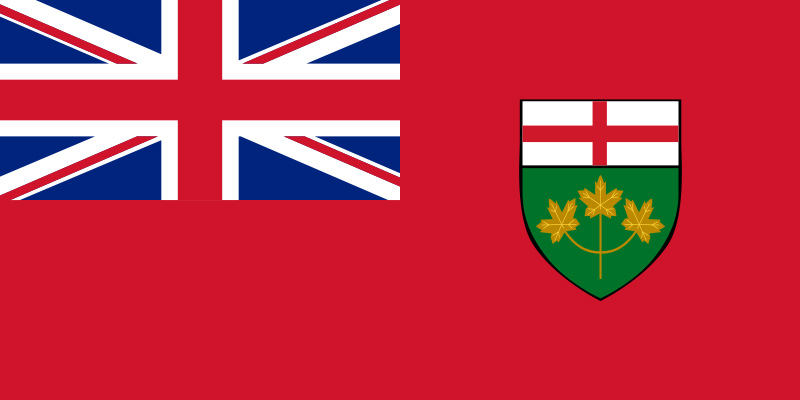
Ontario
In 1996 the Government of Ontario began to privatize highway snow clearing services. It said privatization would save the government at least five per cent compared to the public sector cost. But a 1999 provincial Auditor General’s report revealed that of the first four maintenance contracts, three actually cost $2 million more than having the public sector do the work. It also found that after awarding highway maintenance contracts, MOT hired the contractors to perform additional work without going to tender.
As well, the Auditor General found the MOT sold off snow clearing equipment, paid for by taxpayers, to private contractors for pennies on the dollar without going through the required public auction. This helped ensure it would be next to impossible to return highway snow clearing to the public sector.
At the time, MTO purchasing officer, George Kerhanovich, speculated that “Perhaps the biggest danger to taxpayers from managed outsourcing is that MTO equipment gets given away at fire-sale prices. It’s happening now. Contractors are picking up MTO plows and trucks for a song. Taxpayers are not getting fair value.”
By 2000, Ontario had fully outsourced all its highway snow clearing. In 2009, the MOT introduced a new performance-based contract model in an effort to reduce overall expenditures.
Under this new model, contractors are not required to use the MOT’s historically proven best practices to determine things like the type and amount of equipment to keep the highway system safe.
Companies won contracts without having enough equipment to fulfill them. They cut costs by short-changing on salt, sand, and other materials. And it took them twice as long to clear the highways.
Investigations uncovered hundreds of shortcomings. Companies were fined but often failed to pay the fines, and yet they were allowed to continue to do the work, and they were paid for it.
Even more significant than the financial losses from privatization were the safety issues noted by the Auditor General: “There were concerns that individual patrol areas were too large to adequately monitor the work of contractors to ensure that provincial highways were safe, usable and protected from untimely deterioration.”
In January of 2014, the MTO revealed that three highway maintenance companies in the northwest had been fined for failure to meet service standards. The MOT would not say how much the fines were, and a contractor said the company was not allowed to comment publicly on maintenance issues. This in itself confirms a common criticism of government contracts with private companies: they allow both governments and contractors to hide information from the public about how public funds are spent.
Provincial investigations in 2012-13 and 2014-15 uncovered more than 300 cases where private contractors failed to provide proper winter road maintenance services.
Road maintenance contractors were fined more than $47 million by the Ontario government over a five-year period for failure to provide services. According to the MOT, some of the fines may have been reduced or waived by the government.
Carillion Canada faced $900,000 in fines for failing to properly clear the QEW of snow and ice during storms in November and December 2014. The MOT investigation into the 2014 storms found Carillion was late in deploying snow clearing and de-icing equipment, and did not apply enough salt on the highway. Carillion was also investigated by the MOT after a series of accidents in Peel and Halton regions on New Year’s Day 2016. The MOT was checking to see exactly when the company dispatched salt spreaders and how much salt was applied on the Queen Elizabeth Way and on sections of Highways 400, 401, 403, 410, and 427 during a January 1, 2016 storm. About 20 accidents were reported on highways west and north of Toronto that day.
In a special report on winter highway maintenance, Ontario’s Auditor General found that by 2015 Ontario was saving money on road maintenance contracts but at a cost that included taking twice as long to clear highways of snow or ice than it did previously – nearly five hours in some cases. She also reported that private road maintenance companies were using insufficient salt and de-icing fluid.
As recently as March 2014, the Ontario government was reported to be reconsidering the privatization of winter road maintenance in the province after a report from Global News raised questions about road safety. A poll released to Global News suggested more Ontarians than not feel road quality in the province is getting worse.
Personal injury lawyers contacted Global News suggesting both the government and private contractors could be opening the door to litigation if safety standards are not maintained in road maintenance.
The Minister of Transportation at that time suggested that the government was looking at a potential overhaul of the privatized system.
If we’re going to manage the liability on behalf of the people of Ontario . . . then I would rather have that done directly by the public sector who is directly accountable to the legislature and the people of Ontario than a contractor who at this point in time has not met the terms of the contracts they’ve signed.
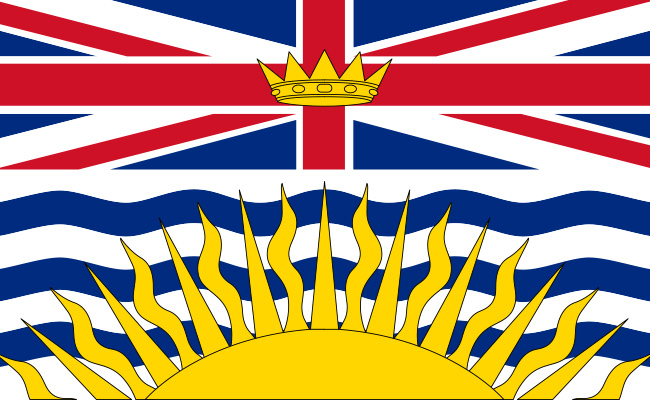
British Columbia
Highway maintenance in BC was privatized in 1988. Since then BC’s highway network has been maintained by private firms hired by the province. The independently prepared 1994 “Burton Report” found cost increases to highway maintenance program, concern over long-term preservation of highway assets, and decreased competition.
The 1991 Minister of Transportation and Highways in British Columbia stated his plan to undertake “a thorough review of the privatized road and bridge maintenance program to ensure that the taxpayers of British Columbia are getting good value for their dollars and that high standards of service are maintained.” The subsequent study found that costs had actually increased by $19 million per year in 1992-93 constant dollars.
A report also found that the more visible, cosmetic work was being done more extensively than the less visible preventative maintenance work, to an extent that the highway infrastructure was at risk over the long term.
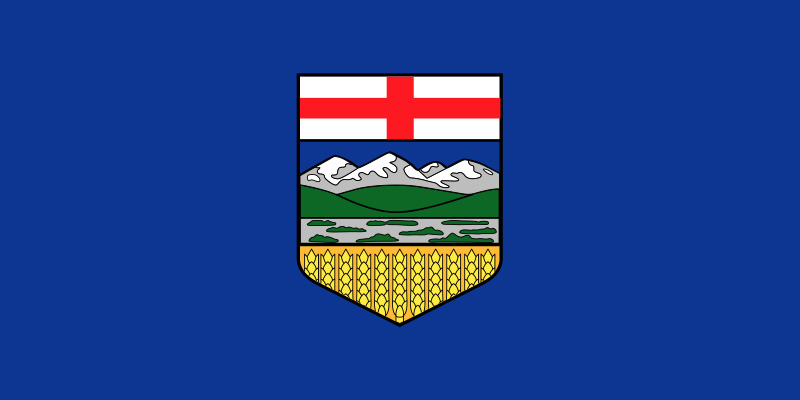
Alberta
Up until the mid-1980s, the Province of Alberta carried out all the maintenance on its primary highways. The maintenance of secondary highways, resource roads, and local roads fell under the jurisdiction of the municipalities. Throughout the mid- to late 1980s and the early 1990s, the government gradually expanded the role of contractors in the maintenance of its primary highways. In 1995-96 it decided to outsource all the maintenance to private contractors.
Although there were a couple of attempts, no one actually carried out a comprehensive study to determine if privatization of highway maintenance in Alberta had been cost effective. So in 2002, the Parkland Institute undertook a review to determine if the switch to private highway maintenance had resulted in lower costs for the Alberta government while maintaining the same level of service.
According to the study’s authors: “[P]rivatization in any form – as presently constituted under Alberta’s privacy laws and the secrecy practiced by the government itself, represent a genuine problem of public accountability . . . Neither consulting firms, contracted by the government, nor the Auditor General of Alberta are mandated to examine the consequences of privatization”.

Québec
While it is difficult to determine what percentage of highways in Québec are maintained by private sector contractors in any given year, a few things are perfectly clear.
- The number of people employed by the provincial ministry of transportation has declined steadily – between 2009-10 and 2015-16, it fell by 41%. There have been additional cuts since.
- There is a shortage of qualified snow plow operators in Québec.
- Québec does not require snow plow operators to have a special license or specialized training, but at least public sector snow plow operators receive specialised training.
- Snow clearing contractors in Québec did not provide specialized training to their snow plow operators until pressured to do so as a result of a media exposé.
- There is no limit on the number of hours a private sector snow plow operator can work in Québec.
- Private snow-clearing contractors in Québec have been convicted and fined for price fixing but allowed to continue providing highway snow clearing services to the province.
- In 2015-16, the ministry of transportation issued 95 notices of reprimand to subcontractors “for breaches that compromised public safety.”
- Following a highway snow clearing disaster, the minister responsible for transportation at the time vowed to return at least 50% of highway snow clearing to the public sector but was unable to hire enough qualified snow plow operators to meet that commitment.
- A 2017 report by Québec’s Auditor General revealed the department, which contracts out 95% of its work, was unable to determine it was getting the best price available or to ensure the quality of the work being done. Small firms were often excluded from the process, and cost estimates were not being conducted properly.
A case study of private-sector snow clearing in Québec
On March 17, 2017, despite two days’ warning about a pending snow storm, a private contractor failed to properly clear a section of the highway, which led to hundreds of people being stranded for as much as 13 hours. (Two days before the incident, Environment Canada had issued a special weather statement, followed by a storm watch advisory and a storm warning issued on the day before.) The incident happened because two transport trailer drivers who got stuck refused to be towed, saying they didn’t need to be towed – the highway needed to be cleared. (Road conditions at the time were later attributed to the failure of de-icing operations carried out by private contractor Roxboro Excavation.) When asked to clear a corridor to allow evacuation of the trapped drivers, the Roxboro had no equipment available. (Roxboro was one of five private contractors convicted of price fixing in 2000.) Efforts by provincial government employees to block access to ramps leading to the highway were stymied because the provincial ministry of transportation had failed to call in extra workers. In response to this incident, the minister of transportation promised to return 50% of highway snow clearing to the public sector but was unable to do so because of a shortage of snow plow operators available for hire. As recently as 2019, at least one opposition member has called on the provincial government to return highway snow clearing to the public sector. The premier launched an independent investigation of the incident. Two senior provincial officials were stripped of their duties, and Roxboro lost the contract.
Ministry of Transportation Workforce
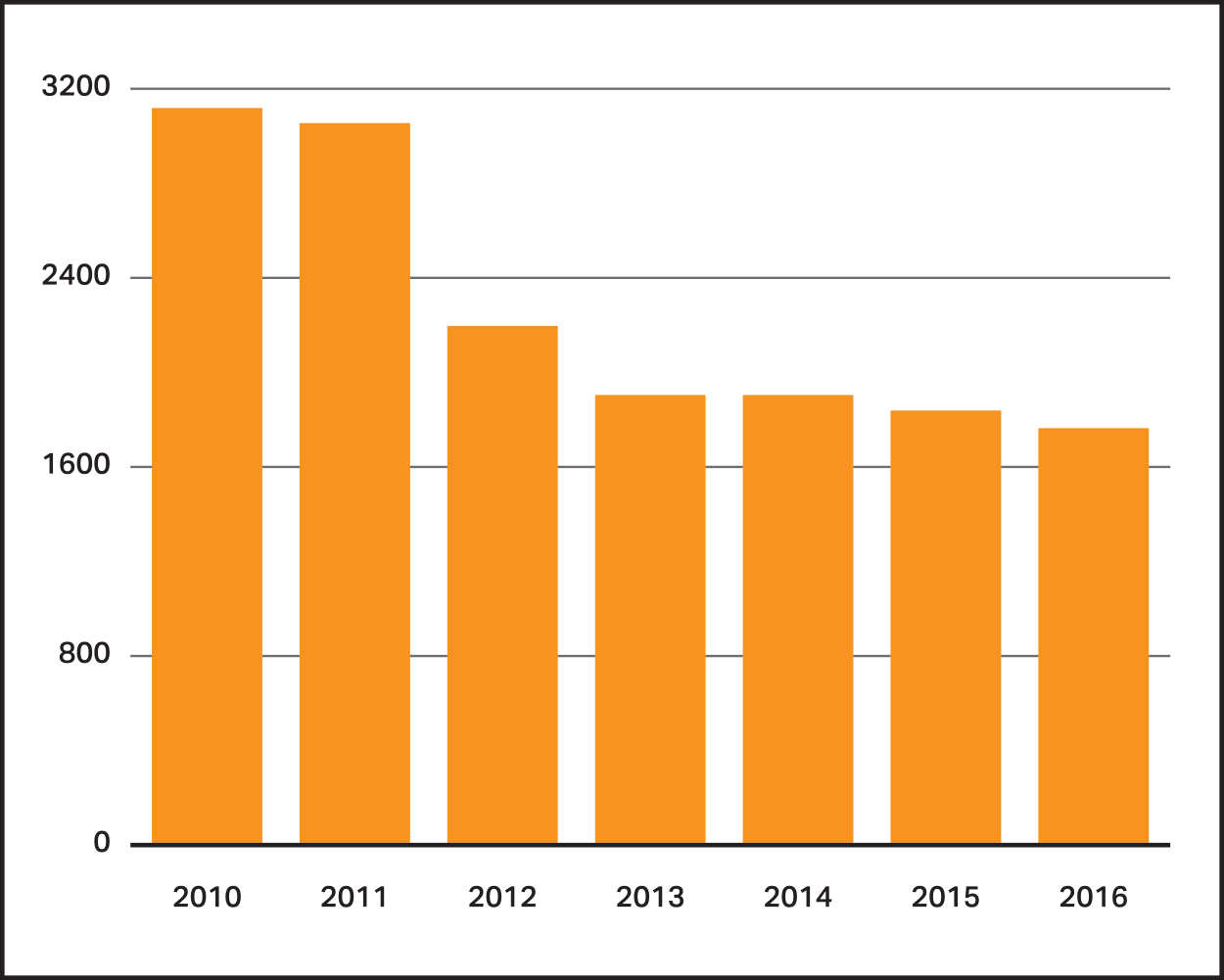
SOURCE: ministère des Transports
Since then, Treasury Board instructed the ministry of transportation to cut 389 additional full-time equivalent (FTE) employees.
Contractors reprimanded for compromising public safety
In 2015-16, the MTQ issued 95 notices of reprimand to subcontractors “for breaches that compromised public safety.” MTQ’s spokesperson refused to share these notices with Le Devoir, telling the paper it could request them under access to information legislation.
Private snow plow operators unlicensed and untrained, with no limits on the hours they work
In March 2019, an opposition MNA called on the Government of Québec to return all highway snow clearing to the public sector. He was reacting to a video report published by Tabloid, which showed that many private-sector snow plow operators receive practically no training when they are hired. They also do not have a specific license or a limit on the number of hours they work.
In the public sector, employees are trained before being hired as snow plow operators, but still are not legally required to hold a special license – a legal vacuum in the industry.
According to the opposition MNA, 80% of snow removal in Québec is entrusted to the private sector.
In response to the Tabloid exposé, the association representing Québec’s private snow-removal contractors said it would have a new training program in place before next winter.
SOURCES:
Bartko, K. (2018, Mar. 21). Carillion gets $9M bailout from Alberta to continue winter highway maintenance. Global News. Via https://globalnews.ca/news/4096686/carillion-canada-alberta-highway-bailout/
Bennett, D. (2018, Aug. 1). Alberta going to court, accused of breaking trade rules on nearly $500-million road contract. Globe and Mail. Via https://www.theglobeandmail.com/canada/article-alberta-going-to-court-accused-of-breaking-trade-rules-on-50/
Ward, A. (2017, September 26). Carillion is being replaced as the plowing provider for parts of Muskoka. CTV. Via https://barrie.ctvnews.ca/carillion-is-being-replaced-as-the-plowing-provider-for-parts-of-muskoka-1.3607085
Wells, J. (2018, Jan. 16). Carillion’s collapse shows limits of our drive to outsource. The Star. Via https://www.thestar.com/business/opinion/2018/01/16/carillions-collapse-shows-limits-of-our-drive-to-outsource.html
Vandermeulen, G. (2022, Jan. 28). Study suggests snow clearing suffers from government cuts. The Carillon. Via https://www.winnipegfreepress.com/the-carillon/local/Study-suggests-snow-clearing-suffers-from-government-cuts-576136601.html
Lysyk, B. (2015). Winter Highway Maintenance: Special Report. Toronto: Queen’s Printer for ON. http://www.auditor.on.ca/en/reports_en/winterhighway_en.pdf
Peters, E. (1999). Annual Report of the Provincial Auditor. Toronto: Queen’s Printer for ON. https://www.auditor.on.ca/en/content/annualreports/arbyyear/ar1999.html
Burton, P., et al (Ernst & Young), Harvey, R.G. (1994). Operational, Human Resource and Financial Implications of the Privatized Highway Maintenance Program of the Province of British Columbia. BC Ministry of Transportation and Highways. http://dontletgo.ca/wp-content/uploads/2016/03/Burton-Report.pdf
Prescott, L. (2003). Unaccountable: The Case of Highway Maintenance Privatization in Alberta. Parkland Institute. Via https://www.parklandinstitute.ca/unaccountable_the_case_of_highway_maintenance_privatization_in_albert
Company hired by Liberals probed for not clearing GTA highways. (2016, Jan. 6). Toronto Sun. Via https://torontosun.com/2016/01/06/company-hired-by-liberals-probed-for-not-sanding-gta-highways
MTO fines contractors for substandard highway maintenance. (2016, January 27). CBC. Via http://www.cbc.ca/news/canada/thunder-bay/mto-fines-contractors-for-substandard-highway-maintenance-1.2512384
Bliss, P. et al. (2016, Jan. 22). More than 300 case of road maintenance failures: Ont. investigations. CTV. Via http://toronto.ctvnews.ca/mobile/more-than-300-cases-of-road-maintenance-failures-ont-investigations-1.2747041?hootPostID=03888e42fedef96da81bd39caf0b97d2
Leslie, K. (2016, Jan. 6). Carillion investigated for not salting Ontario highways during storm. Globe and Mail. Via http://www.theglobeandmail.com/news/national/carillion-under-investigation-again-for-not-salting-ontario-highways/article28034100/?ord=1
Ontario conducted hundreds of investigations on road maintenance contractors. (2016, Jan. 12). CTV. Via https://toronto.ctvnews.ca/ontario-conducted-hundreds-of-investigations-on-road-maintenance-contractors-1.2734950
Armstrong, J. (2014, Mar. 25). Government reviewing privatization of winter road maintenance. Global News. Via http://globalnews.ca/news/1230229/government-reviewing-privatization-of-winter-road-maintenance/
Corriveau, J. et al. (2017, Mar. 17). Déneigement privé, problèmes publics. Le Devoir. Via https://www.ledevoir.com/politique/quebec/494234/quebec-a-t-il-forge-son-malheur
Riga, Andy. (2017, Mar. 17). Highway 13 timeline: How a minor problem snowballed into a fiasco. Montreal Gazette. Via https://montrealgazette.com/news/local-news/highway-13-how-a-minor-problem-snowballed-into-a-fiasco
Ducas, Isabelle. (2018, May 7). Déneigement d’autoroutes: Ça nous coûte de l’argent pour travailler. La Presse. Via https://www.lapresse.ca/actualites/201805/06/01-5173412-deneigement-dautoroutes-ca-nous-coute-de-largent-pour-travailler.php
Ouellette-Vézina, H. (2019, Mar. 5). Métro. Déneigement: il faut rapatriés tous les contrats au public, plaide Québec solidaire. Via https://journalmetro.com/actualites/2216530/deneigement-il-faut-rapatrier-tous-les-contrats-au-public-plaide-quebec-solidaire/
Leclerc, Guylaine. (2017, June). Report of the Auditor General of Québec to the National Assembly: Special Audit (Part 2) Ministère des Transports, de la Mobilité durable et de l’Électrification des transports: Contract Management Highlights. Via https://www.vgq.qc.ca/Fichiers/Publications/rapport-annuel/enquete/2017-2018-MTMDET/en_Rapport2017-2018-MTMDET.pdf
Authier, P. (2017, June 14). Transport Québec has lost control over contracts: auditor-general. Montreal Gazette. Via https://montrealgazette.com/news/quebec/transport-quebec-has-lost-control-over-contracts-auditor-general
Fletcher, R. (2017, June 14). Québec’s transport ministry lacks expertise: auditor general. Global News. Via https://globalnews.ca/news/3528189/quebecs-transport-ministry-lacks-expertise-auditor-general/
